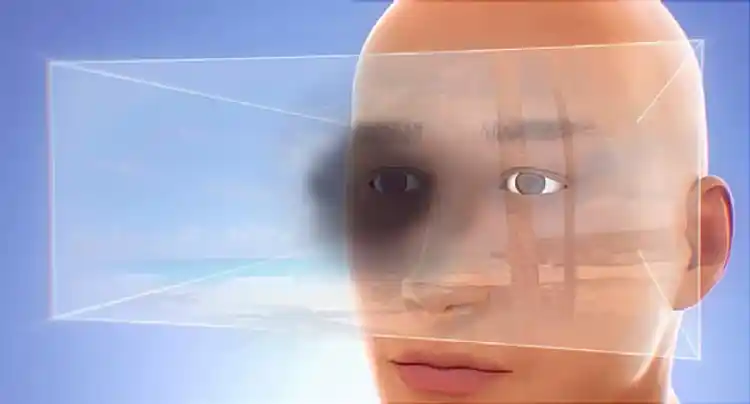Macular Degeneration?

Hide Video Transcript
Video Transcript
SPEAKER
Macular degeneration is the most common cause of age-related vision loss in older adults. In a healthy eye, light travels through the pupil and hits the retina, the inner back layer of your eye. Thin layers of cells in the retina send electrical signals along the optic nerve to the brain, where they're translated into the images you see.
Located in the center of the retina is the macula. Here, millions of light-sensing cells provide sharp, central vision. Macular degeneration happens when cells in the macula become damaged. As a result, the brain receives images that are distorted or unclear.
Initially, macular degeneration may not noticeably affect your vision. But if it gets worse, you may notice an area of dark, wavy, or blurred vision in the center of your field of view. Over time, this area may increase in size. Ultimately, complete loss of central vision may happen.
There are two types of macular degeneration, wet and dry. Dry macular degeneration is much more common and happens when the tissue of the macula becomes thin and stops working like it should.
The less common wet macular degeneration happens when abnormal blood vessels grow and leak fluid under and into the macula.
If you have any vision problems, talk to your doctor right away.
